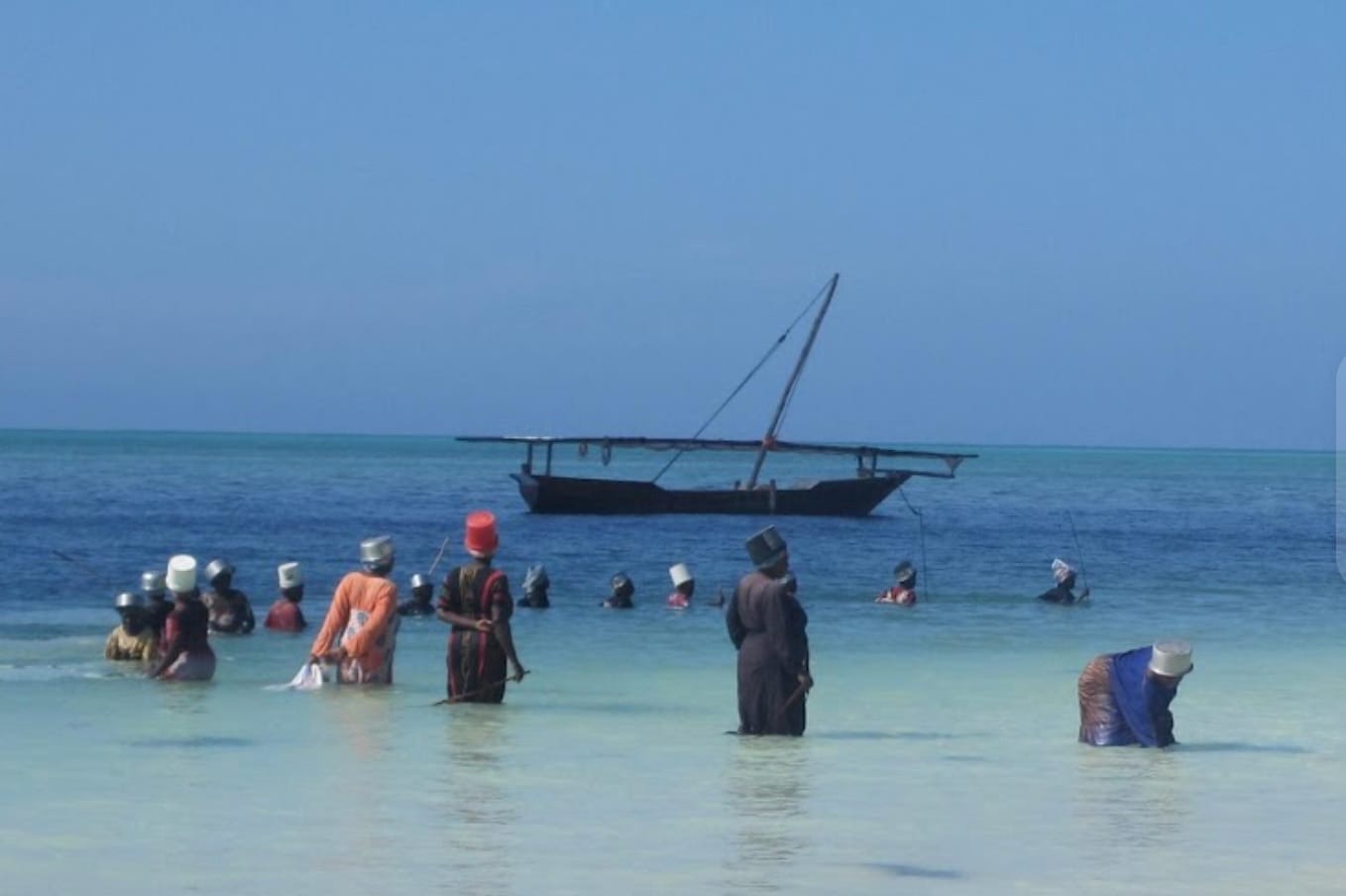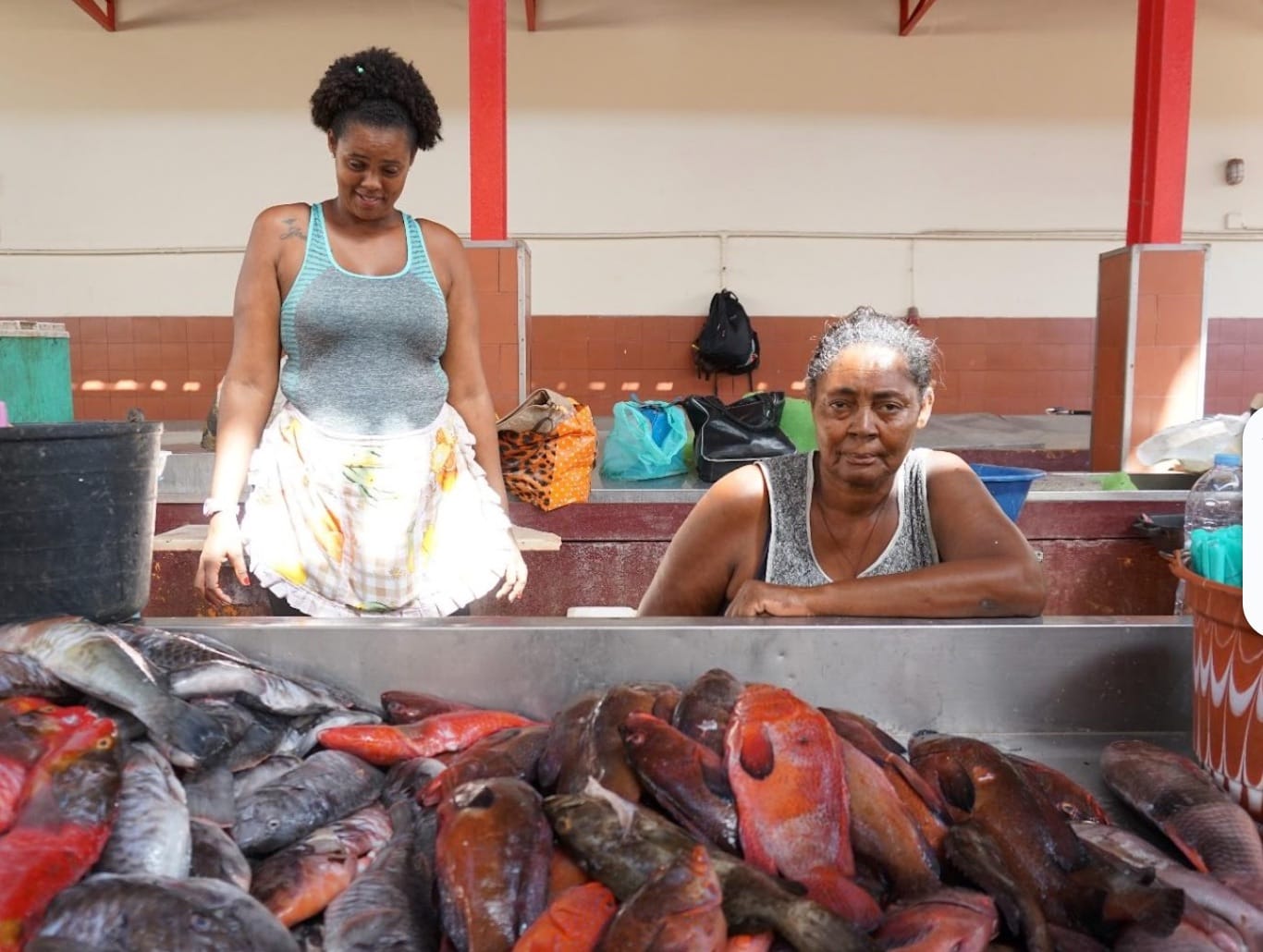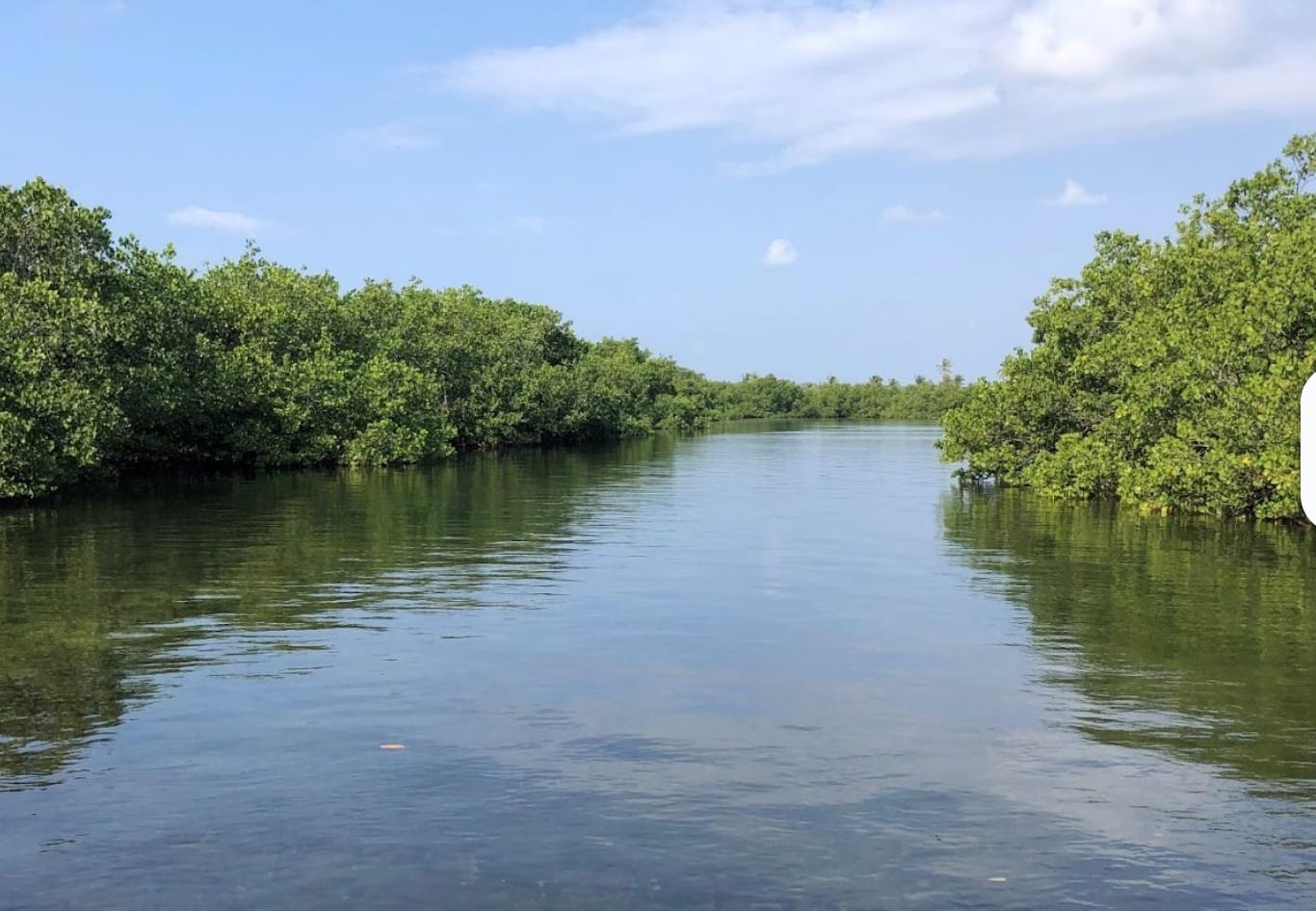Gender perspectives in Nature-based Solutions (NbS)
During the third session of the NAbSA Dialogues, participants from the Partnering for Climate (P4C)initiative, along with experts from various fields, explored the critical role of gender integration in Nature-based Solutions for climate adaptation, resilience and poverty reduction. This session provided insights into how gender-responsive approaches can enhance the effectiveness and sustainability of NbS projects, emphasizing the importance of inclusive governance and addressing gender inequalities. The discussion highlighted strategies to empower women and engage men as allies, ensuring that both genders contribute meaningfully to climate adaptation and ecosystem restoration efforts.
 copyright Michelle Kuenzli
copyright Michelle Kuenzli
Jackie Siles, IUCN’s Senior Programme Manager for Gender, started the webinar with a short presentation on the Gender Perspective in Nature-based Solutions and stressed the importance of its incorporation for sustainable development. She highlighted the need for inclusive governance and human rights-based approaches in Nature-based Solutions, as degradation and inequality together contribute to the vicious cycle of reinforcing poverty. The panellists then introduced their projects, each emphasizing gender perspectives.
“Women and men have different roles and responsibilities and (…) because they relate differently with resources they can also contribute in different manners to the environmental conservation and management.” Jackie Siles, IUCN
Panellists:
- Jackie Siles, Senior Programme Manager for Gender at IUCN
- Tiranke Ngaguep Camara, Technical Advisor in Gender Equality and Social Inclusion at CECI – Guinea: “Adaptation climatique fondée sur la nature dans la forêt guinéenne de l’Afrique de l’Ouest”
- Coline Camier, Principal Gender Equality Advisor at Mission Inclusion: “The Regenerative Seascapes Project for Planet, Nature, and People (ReSea)”
- Fernande Abanda, Programme Manager at Inter Pares: “Action Climatique Féministe en Afrique de l’Ouest (ACF-AO)”
- Noëlle Rancourt, Gender equality and Inclusion Advisor at Plan International: “Conservation and Sustainable Management of coastal and marine Ecosystems (COSME)”
Noëlle Rancourt introduced COSME, a project focusing on gender-responsive Nature-based Solutions in coastal Kenya and Tanzania. Noëlle highlighted COSME’s gender transformative approach, which is rights based and result driven, aiming to address gender inequality as a barrier to climate adaptation and biodiversity conservation. She discussed the integration of gender equality and inclusion in project design and implementation, with an emphasis on local leadership and social norm change.
Colin Camier introduced the ReSea project, which has been set up in collaboration of Mission Inclusion and IUCN. As part of the Great Blue Wall initiative, it is implemented in five countries – Mozambique, Comoros, Tanzania, Kenya, and Madagascar – aiming to enhance climate and socio-economic resilience in coastal communities. ReSea focuses on strengthening local governance, protecting marine ecosystems, and integrating women and youth into the blue economy through gender-sensitive conservation and innovative value chains, promoting active leadership and empowerment.
Fernande Abanda introduced the project ACF-AO, which focuses on enhancing the climate adaptation capacities of rural women and youth in West Africa’s coastal, island, and mangrove regions. It aims to amplify community responses to climate change by strengthening women’s and youth’s participation in biodiversity governance and ecosystem restoration, using local knowledge and principles of feminist climate justice to implement Nature-based Solutions across Senegal, Côte d’Ivoire, Togo, and Guinea-Bissau.
Tiranke Ngaguep Camara introduced the NbS Guinean Forests project, which focuses on promoting nature-based and gender-sensitive, inclusive climate adaptation in the threatened forests of West Africa. The project, active in Côte d’Ivoire, Ghana, and Guinea, aims to enhance women’s leadership in climate adaptation planning and the restoration of degraded forests. The initiative trains women and community groups in gender-sensitive restoration techniques, fostering biodiversity, increasing women’s income through sustainable market systems, and ensuring climate resilience.
 copyright Michelle Kuenzli
copyright Michelle Kuenzli
The second part of the webinar discussed several key aspects that Nature-based Solutions (NbS) should consider when designing and implementing gender-responsive activities. One of the critical aspects discussed was the importance of fully engaging women as active participants in NbS projects. Fernande emphasized that projects must be designed based on the experiences, needs, and interests of women in the communities and include women as stakeholders. If these needs are not adequately understood and addressed, there is a significant risk that the projects will not be viable or sustainable for the communities, particularly for women. Understanding the local context and involving stakeholders who are traditionally not associated with promoting gender equality, such as patriarchal guardians, traditional leaders, and institutional decision-makers, is crucial. Additionally, Tiranke suggested activities aimed at promoting positive masculinity and fostering dialogue on gender equality should include men, as their involvement can lead to greater openness and support for women’s empowerment.
“One component is engaging men as allies rather than just guardians of patriarchy, ensuring they are part of the process as beneficiaries in a way that supports a woman-focused and woman-led approach.” – Noëlle Rancourt
The involvement of men as allies in promoting gender equality within NbS was a recurring topic. Noëlle discussed strategies for male engagement, emphasizing the need for a strategic approach rather than randomly involving men in conservation groups. She explained how COSME strategically engages men by involving influential or critical men in parallel processes with women, and reflection on power and workload distribution within households is promoted. This involves targeted discussions, gender analysis, and household action planning, where both genders can collaborate more effectively. Coline shared a model used by her Kenyan partners, utilising gender equality champions and promoting informal dialogue among men within the same community to challenge cultural norms and practices that hinder women’s participation and voice.
The discussion also highlighted the importance of mitigating risks and maximizing the impact of NbS. Noëlle pointed out that NbS can inadvertently deepen gender inequalities and social exclusion if not carefully planned. There is a risk of reinforcing existing hierarchies, increasing women’s burdens, and experiencing capture of potential benefits by men. To prevent this, integrating strategies that address these risks is essential. Noëlle emphasized the importance of working with women-led conservation groups and setting a target for women’s participation within these NbS groups. A gender-transformative approach is necessary, promoting women’s agency and ensuring an enabling environment for their empowerment. This includes incorporating gender equality and inclusion into training materials and assessments, ensuring women have the necessary technical knowledge and skills to participate meaningfully in NbS activities.
 copyright Michelle Kuenzli
copyright Michelle Kuenzli
The process of developing a gender strategy for NbS projects was another key topic. Coline explained that this process involves multiple stages. The strategy is designed to ensure active participation and leadership of women in all their diversity. Given the involvement of multiple partners, the strategy must be clear and specific to ensure a shared understanding among all stakeholders. Coline stressed that gender strategies often risk being sidelined, so it is essential to keep them concrete and action-oriented to ensure they remain central to the project’s implementation.
Asked by the audience, the webinar also addressed challenges and ways forward for including women in NbS. Coline highlighted that community governance mechanisms, whether community-based or state-level, often reflect masculine power dynamics, leading to the exclusion of women, particularly in roles requiring being empowered by the community or literacy, such as fishermen or state leaders in Marine Protected Areas (MPAs). Fernande added that dialogue and advocacy with decision-makers and traditional leaders are crucial for advancing women’s rights and ensuring their inclusion in NbS projects. Such dialogues not only facilitate the integration of women but also help communities better understand power dynamics and appreciate women’s contributions. Training women in advocacy and enabling their participation in national dynamics is also vital, as women often hold significant traditional and indigenous knowledge.
“Nature-based Solutions are a powerful way to address societal challenges but also a way to transform how society relates to nature.” – Jackie Siles, IUCN
When asked to give some tangible examples on how men and women use resources differently, Fernande highlighted the traditional exclusion of women from beekeeping due to social beliefs, but noted efforts to challenge these stereotypes and increase women’s participation through community awareness and training. Noëlle discussed gender roles in participatory forest management, where men focus on economically driven tasks like timber processing, while women prioritise fuelwood collection, influenced by their family roles. Tiranke provided an example from Guinea, where men handle labour in agriculture, and women manage planting, harvesting, and selling, with women’s earnings often supporting the household needs.
In conclusion, the webinar underscored the importance of a comprehensive approach to designing and implementing gender-responsive activities in NbS and to promote equitable participation in natural resource management. Key considerations include fully engaging women, mitigating risks, developing clear gender strategies, addressing challenges related to power dynamics, and strategically involving men as allies to promote gender equality.
Don’t miss the next one: Join us monthly!
The NAbSA Dialogues are a platform for experts and stakeholders interested in the practical integration of biodiversity conservation and gender approaches for the design and application of effective NbS for climate adaptation and community resilience. Join us to explore how preserving the diversity of life on Earth is crucial for a sustainable future in our changing world.
For more information on these Dialogues or NAbSA, please contact Veronica Ruiz ([email protected]) and Zoe Jafflin ([email protected]).
